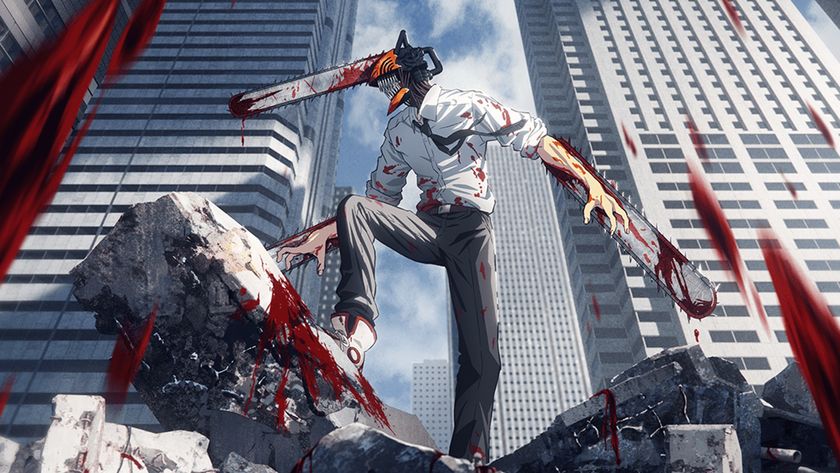"I wasn't some hired gun who was just brought in to scream" - voice actor Ashly Burch on becoming Horizon Zero Dawn's Aloy
We chat to the talent behind Aloy and Chloe from Life is Strange
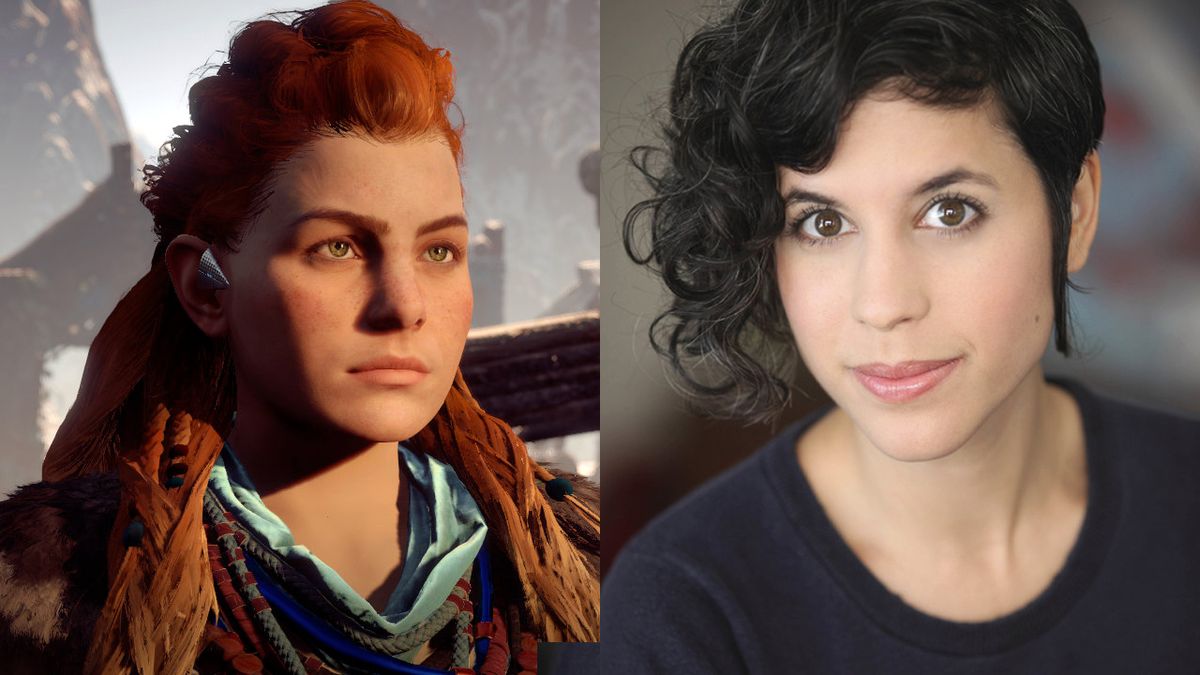
Horizon Zero Dawn is easily among the best games of 2017, with its gorgeously verdant post-post-apocalypse, tense cat-and-mouse encounters with colossal robo-animals, and a main character by the name of Aloy who quickly cemented herself as one of gaming's greatest female leads. Our reviewer Zoe describes Aloy perfectly: "She’s tenacious, with a shard of fury inside... playing her feels like you’re teaming up with someone ambitious and intelligent." Much of Aloy's popularity with critics and fans is thanks to the work of the person who portrays her: voice actor and writer Ashly Burch.
Even if you didn't already know Burch from her early days as the central mischief maker in Hey Ash Whatcha Playin', you've no doubt heard her voice in plenty of games (like Chloe Price in Life is Strange, Cassie Cage in Mortal Kombat X, Miss Pauling in Team Fortress 2) and cartoons (Enid in OK K.O.!, Sasha Blouse in Attack on Titan) alike. We got the chance to talk to Burch about her portrayal of Horizon Zero Dawn's hero and what it takes to find success in voice acting - as well as some Super Mario RPG appreciation and what it's like to pretend you're being electrocuted.
GamesRadar+: Do you make a point of playing the games you have a role in? Or do you just go with whatever's calling you at the moment?
Ashly Burch: I try to, depending on my schedule. Horizon was a big one. I was like, "Okay, I really have to sit down and play Horizon." That was a pretty big time commitment. So yes, I do always try to play at least [part] of them, depending on what's happening at the time.
Do you think there's more room for Aloy's stories beyond the Frozen Wilds DLC?
Yeah, though that's not a confirmation of anything. [The folks at Horizon developer Guerrilla Games] haven't told me anything. I don't know. [laughs] But yeah, I definitely think that world is super rich, and there's a lot of possibilities in it.
It's so cool that Guerrilla brought you in for motion-capture on Horizon Zero Dawn: The Frozen Wilds - was that your first time doing mo-cap?
Yeah! They did the mo-cap originally in London for the first game, so they tried a different thing where they had it recorded in Los Angeles - but yeah, it's cool. It was an interesting experience, because obviously I hadn't mo-capped Aloy originally. There's this interesting thing where I felt very connected to the character and felt like I knew her really well, but I never embodied her physically before. I had to practice her gait, and the way that she moves.

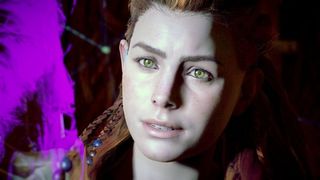
You need to read this brave personal story written by GR+ editor Sam Loveridge about how Horizon Zero Dawn's Aloy inspired her to go looking for her birth parents.
Did you play the game and just walk around in circles, studying the animation?
I really did. I watched her, I watched videos, and I turned on the game and had her run around. I was like, "Okay, how does she walk?" I was actually on a camping trip with my friends and I asked them to critique me, so I was basically doing a runway walk as Aloy. [laughs] They were like, "No, no, no. Move your arms differently," giving me critiques and stuff.
When it comes to facial motion capturing, I've always wondered: what does it feel like when you've got all those dots on your face? You don't really notice them after a while. There are so many things about the [mo-cap] suit that are strange and foreign, but it's crazy how quickly you just forget that it's even there. The weirder thing is that you have a camera with a light shining on your face. Even then, you're just sort of like, "Yeah, okay."
Sign up to the GamesRadar+ Newsletter
Weekly digests, tales from the communities you love, and more
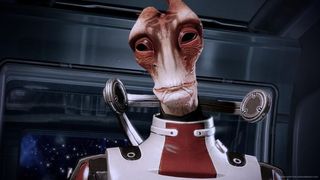
"At some point you learn, 'I can't audition based on what I think that they want, because I have no idea. Sometimes THEY might have no idea.'"
Ashly Burch
If you could voice any character in any game, male or female, who would it be? That could go two ways: characters that haven't been given a voice because it was only text at the time, and characters who have been voiced before.
That immediately makes me think of what Final Fantasy character I'd want to be. Oh God. This is the most nerve-wracking question I've ever been asked. [laughs] I loved Day of the Tentacle and Sam & Max, so playing a character in one of those would've been really awesome. Super Mario RPG was one of my very favorite games when I was a kid. I know Geno's a boy, but I loved him, so I feel like playing Geno would be fun. Or Booster. Booster's such a psycho, he'd probably be fun.
As far as characters that already existed, Mordin from Mass Effect is one of my all-time favorite characters, and I think the voice actors for Mordin [Michael Beattie in Mass Effect 2, William Salyers in Mass Effect 3] are excellent. This would have to be a different universe in which Mordin was a woman or not binary, but I love that character a lot.
When you play games nowadays, do you feel like you hear the voice acting differently than you used to before your career kicked off?
For sure. It can be a curse sometimes; you're like, "I want to watch a movie and just enjoy it. Oh God." [laughs] Yeah, I definitely think about it at night. Sometimes you'll try to deconstruct things; "I wonder why they made that choice," or "I wouldn't have thought to do that in that way," or whatever. I think the casting for Zelda, for example, in Breath of the Wild, was a really cool and interesting choice. I think it could've been easy for her to be a bit more wilty and a bit higher pitched. [But in the game,] I think there's vulnerability in her voice, but she's also very grounded. Yeah, I can't not think about it. It's constant.
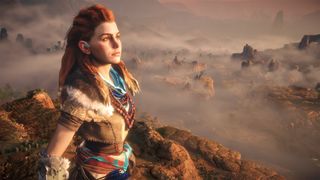
How much room is there for personal interpretation when you take on a role?
I think there's a tremendous amount of room. In the best collaborations, they're casting you because of what you brought in your audition, and your perspective [on the character]. If you're a seasoned actor, at some point you learn, "I can't audition based on what I think that they want, because I have no idea. Sometimes they might have no idea. The best I can do is give my interpretation of this character; what I think is compelling about them. Then, if I get cast, they agreed with me, basically."
That's definitely been my experience. I've had the tremendous fortune to work on games like Life is Strange and Horizon Zero Dawn, where there was a lot of collaboration between me and the developers. I felt like I wasn't some hired gun who was just brought in to scream a bunch of times and then leave. [The team] wanted to know my opinion. There was a lot of back-and-forth that I had with my director on Horizon, like "I don't know if she would do this here. Are you sure about this?" Getting to do long-term collaborations like that is always so nice too, because you become closer to your collaborators, and there's a trust that's built.
For narrative games, and also for the sake of the medium, we have to treat performance that way, as actors. You have to have a sense of ownership over it and believe that you're bringing something meaningful to it - because that's what all of the developers are doing, and that's what the story demands. It's an artistic process, like any other form of acting. I think your interpretation is important.
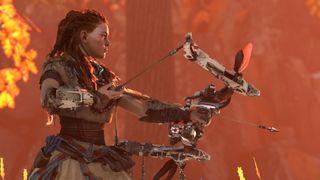
"It's not about how you look... in a way, it feels truer."
Ashly Burch
If you're a younger voice actor, it might be harder to cultivate that belief, because you want to get jobs and just give people what they want. The more that you work and the more that you grow, you realize: "I have a stake in this, and I have a voice in this. It's important for me to express my viewpoints and to give of myself, because that helps everyone in the process." I've been really lucky that I've worked with a lot of developers who are very open to that. I haven't run into too many wacky movie auteur types who say "No, exactly as I wanted it. I had it this way in my mind; that is what you must do."
No Stanley Kubrick types, making you do dozens upon dozens of takes.
Yeah. I haven't had that experience; [everything has been] way more collaborative, which I'm very, very grateful for. I don't want to end up like Shelly Duvall.
A critical point of the voice actors' strike that was resolved earlier this year was the physical stress of recording death screams for games. Which of the characters you've played required the most attack sounds and death screams?
Aloy, for sure. Not so much on the death screams, but there are so many different types of attacks and damage you can take; there's electrical, there's fire, so on. In one of the sessions, it was just a list so long of [damage types]. I was like, "How do I do electric [damage]?" I'd never had to do electric before. I was like "U-u-u-u-u-u-ugh!" [pantomiming a Simpsons-style jolt] You know? [laughs] Suddenly it becomes a cartoon. That's the other thing about voice acting, is that it's strangely physical. There's a bit of having to hold my hands together and shake for those efforts, stuff like that.
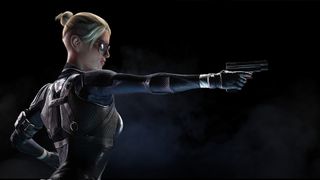
That's so surprising - I would've figured it'd be someone like Cassie Cage [from Mortal Kombat X]!
There were a lot of attack sounds in that, but there's just so much game in Horizon. [laughs] Horizon is just a tremendous amount of game. [Aloy]'s your player character, so you want enough variance that people aren't like, "Is that the same attack or pain sound every single time I get hit?"
How much direction do you typically get for what the attack looks like?
It depends on the director. Sometimes the director will even ape it out for you first. They'll give you an example, so that you don't pull your [vocal] cords out trying to find it for them. Sometimes they just say, "Give me 10 lights, 10 mediums, 10 heavy attacks." Same with damages. Sometimes it's like, "You're throwing a thing. We need a wind up and a throw, and then it comes back, so we need catching." Stuff like that.
It seems like voice acting is less cutthroat than on-screen acting when it comes to auditions. Have you found that at all?
Definitely. There's the joke, "You can do it in your pajamas." I've never shown up to a session in my pajamas - but I definitely do auditions in my pajamas all the time, if I do them from home. It's not about how you look, it's just about - can you perform the character, do you have what it takes. In a way, it feels truer.
I very much doubt there would be any situation in which I would be cast as Aloy for something on-camera. [But with voice acting], if I can hit the performance, then that's what matters. I'm really grateful how much people have responded to that character, because I grew really attached to her. I connected a lot to her and I tried super hard with her, but [during recording], you have no idea how it's going to be received. You hope for the best. When the game came out and everyone really loved it and liked my performance in it, I was super grateful.
Lucas Sullivan is the former US Managing Editor of GamesRadar+. Lucas spent seven years working for GR, starting as an Associate Editor in 2012 before climbing the ranks. He left us in 2019 to pursue a career path on the other side of the fence, joining 2K Games as a Global Content Manager. Lucas doesn't get to write about games like Borderlands and Mafia anymore, but he does get to help make and market them.
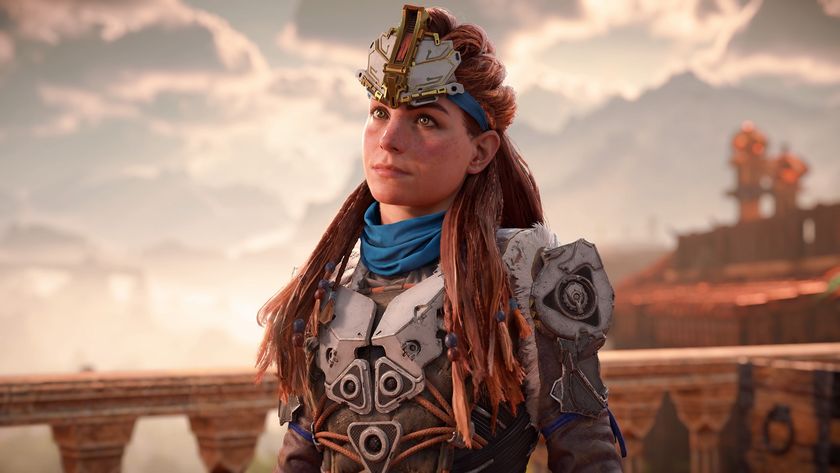
Horizon Zero Dawn star Ashly Burch responds to Sony's controversial AI Aloy by pushing for actor protections: "You have to compensate us fairly, and you have to tell us how you're using this AI"
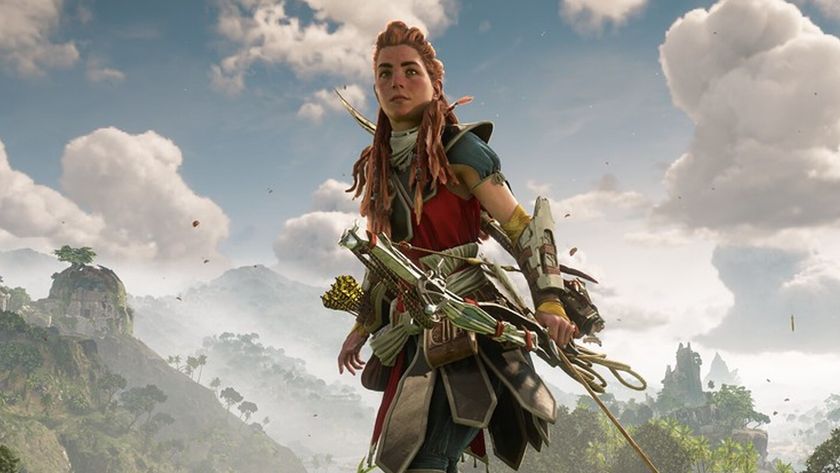
Horizon Zero Dawn's Aloy is the star of Sony's leaked AI-powered character prototype, which allows users to ask questions to an unsettling, emotionless version of the protagonist

